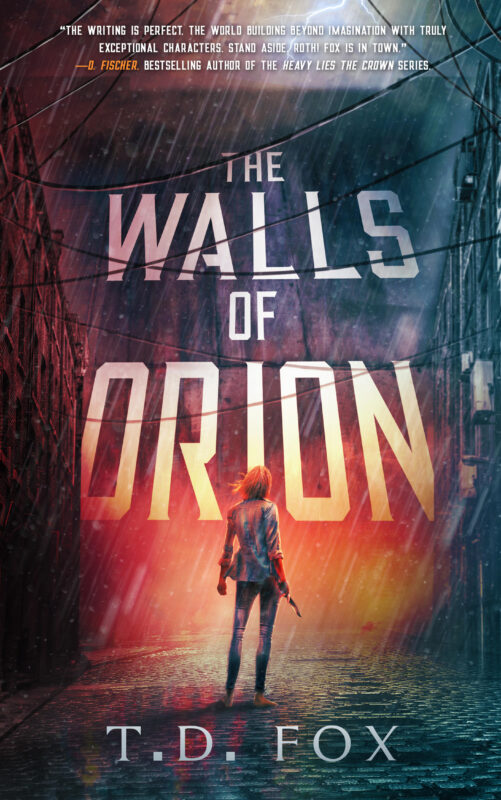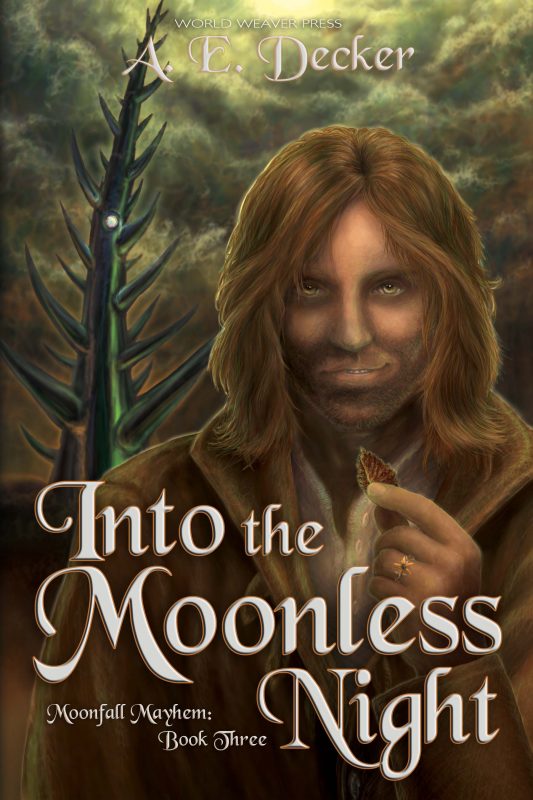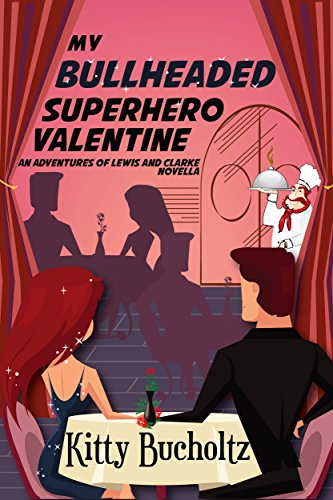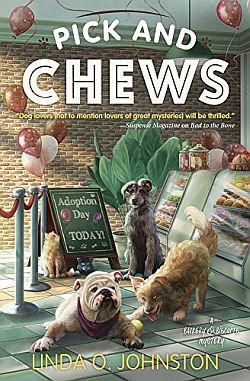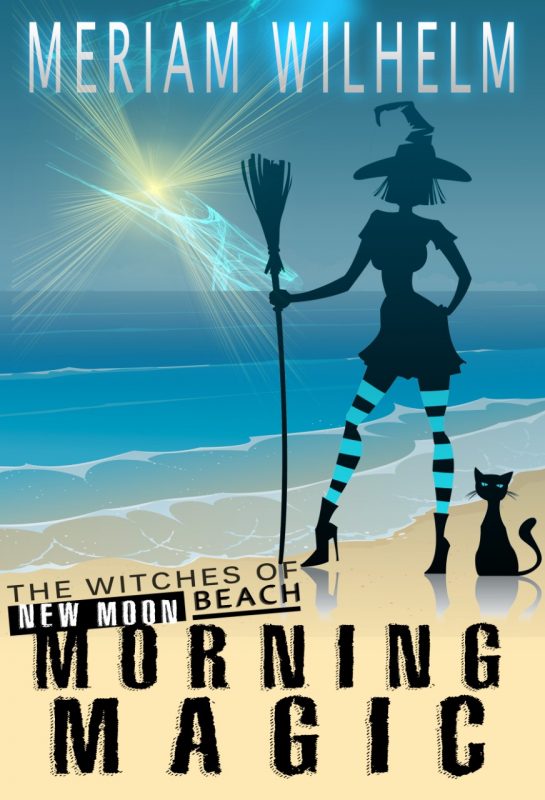March Online Class
February 26, 2010 by A Slice of Orange in category Archives********** permission to forward **********
Hi everyone! Check out the exciting online classes offered by the
Orange County Chapter of RWA!
“The Regency Woman”
with Nancy Mayer
March 15 – April 10, 2010
Enrollment Information at http://www.occrwa.org/onlineclassMarch10.html
COST: $20 for OCC members, $30 for non-members
If you have specific questions, email occrwaonlineclass@yahoo.com
ABOUT THE CLASS:
Ever wonder if Regency women really could get away with some of the things you read about? Do you have a story where you ask yourself, “Can she do that…?†Nancy Mayer has worked to answer many questions on women of the Regency Era and in this workshop she will share what she has learned.
This workshop will focus on Regency woman and their roles, expectations, rights, and power. Including common myths and mistakes writers make in their stories. (Like can or how do woman obtain financial independence, and can they maintain it in marriage.)
ABOUT THE INSTRUCTOR:
Nancy Mayer has been researching the Regency for decades and trying to write for more years than she likes to remember. She has given several workshops on Regency subjects including one for the Beau Monde conference in Reno.
See her webpage for examples of some of the subjects she has covered: http://www.susannaives.com/nancyregencyresearcher/
Enrollment Information at http://www.occrwa.org/onlineclassMarch10.html
COST: $20 for OCC members, $30 for non-members
Coming in April 2010–
“What Does Nora Roberts Know That You Don’t? —
Learn How to Unlock the Simple Secrets Behind Every Best Seller
and Blockbuster Film” with Carol Hughes
Learn about the 18 scenes that every story contains, no matter its length or genre. Find out how to identify your character’s mental gender and what impact that has upon readers. Discover how your character’s arc drives your story and how your story drives your character’s arc. Learn the four throughlines of every story and how to weave them together.
http://www.occrwa.org/onlineclasses.html. Check out our full list of workshops.
Want to be notified personally two weeks before each class? Be sure
you’re signed up for our Online Class Notices Yahoo Group! Sign up at
the bottom of http://www.occrwa.org/onlineclasses.html or send a blank
email to OCCRWAOnlineClassNotices-subscribe@yahoogroups.com
********** permission to forward **********
0 0 Read moreIsabel Swift comments on the Sociology of Snow
February 24, 2010 by A Slice of Orange in category Archives tagged as snow, social contractAfter the recent giant snowfall, it suddenly became clear that snow made manifest all kinds of hidden things. It was like dusting for fingerprints. Suddenly, all kinds of things that are normally invisible, marked only in the air, are now marked in… water. And HA! The water is solid. It is snow. Everyone can see every step you have taken, the mark of your foot, the path you have chosen.
And what fascinated me in a city was that it also became a visual declaration of everyone’s relationship with others—their social contract was declared for all to see: upheld, breached, broken. Leaving us to shake our heads. To speculate. To categorize.

Yes, true to stereotype no one did anything ever. No effort was made to clear their own stairs—one can imagine the internal dialogue: “I’m cool. I can make it down. Why waste my time making any easier for anyone else?”
As for sidewalk, the conversation might go, “Public sidewalk you say? Litigation? Hey, I’m not going to have to pay for anything. Someone’s parents would have to ante up if something happens and we’re out of luck.”
Recent addendum: Boys had visitors of the female type after a giant snowfall and were heard to announce loudly as they toiled up the snow covered steps, “Someone stole our shovel!” Good line…!
Then there’s what I call the “Me ‘n’ Mine…but not You.” 
Yes, a carefully cleared personal walkway, but then all bets are off. The sidewalk? No additional effort expended for their fellow man—even though they are going to be walking on it fairly frequently too. The personal pain of shoveling is limited solely to the area of 100% personal gain. Anything that others might benefit from (even though they also benefit) is not effort worthy.
Below we seem to have a No Man’s Land in front of a Gas Station. Perhaps they are not liable? They certainly don’t seem to have made any effort to clear the sidewalk, allowing the path to be created by many feet heading for bus stop, etc.
I titled the one below “Me ‘n’ You ‘n’ My Car.” Here, the person (I’m thinking guy, but don’t want to be sexist) cares enough about the car to buy it a little outfit, to clear their own stairs, to clear the car’s path AND to clear the public walkway while
they were at it. Nice, eh?
 Below is another ode to one’s car. Someone had not only cleared the sidewalk, and the car, but also created this adorable little path to their Mini. I’ve titled this “Me ‘n’ My Mini.” I thought this especially charming as it may only work once. When they drive off, there’s no guarantee the spot will still be there on their return.
Below is another ode to one’s car. Someone had not only cleared the sidewalk, and the car, but also created this adorable little path to their Mini. I’ve titled this “Me ‘n’ My Mini.” I thought this especially charming as it may only work once. When they drive off, there’s no guarantee the spot will still be there on their return.

And just down the road there was the sad sight of a comparatively uncaring and neglectful car owner. Their formerly “hot” new VW Bug lies buried under a heap of snow. No path, no interest, no warm intentions. Can you see how snow has made everyone’s intentions and attitudes almost uncomfortably visible in a way previously invisible to all?
Some techniques: here’s exactly a one shovel width walkway. Beware people with strollers! You have to back up and find a pull out to allow them to pass, just as if you were a car or trying to get to the bathroom on an airplane! 
Unlike the nearby Gas Station, this stately home and museum (Tudor Place)takes up almost an entire block and they always clear the sidewalk, even though most is just along their garden. (Just discovered their secret: Snow Blower!) The dog walkers and joggers are very appreciative. 
And of course, if there’s money in it, effort is expended. Commercial establishments tend to have very welcoming sidewalks.  And I haven’t even touched on methodology! The shovelers (elbow grease + muscle power), the sweepers (getting those nooks and crannies), the salters (no expense spared, little effort, maximum result, maximum negative environmental impact). And snow blowers–rare in a city, but I’m much more sympathetic to them than the irritating leaf blowers! Then the participants themselves: the do-it-yourselfers (voluntary and volunteered), the hire-it-outers, the hire-me-please-ers.
And I haven’t even touched on methodology! The shovelers (elbow grease + muscle power), the sweepers (getting those nooks and crannies), the salters (no expense spared, little effort, maximum result, maximum negative environmental impact). And snow blowers–rare in a city, but I’m much more sympathetic to them than the irritating leaf blowers! Then the participants themselves: the do-it-yourselfers (voluntary and volunteered), the hire-it-outers, the hire-me-please-ers.
So that is my photo essay on the sociology of snow. For those of you that live snow-deprived lives, this may be a glimpse into a new world. For those whose winter starts in October and ends in May, well this may not go far enough….
Isn’t it fascinating how snow makes people’s attitudes to others, to their possessions, to what they consider “worth their effort” so visible? And while our interpretations may not always be accurate—an owner may be absent, infirm, equipment-less, whatever—I do enjoy speculating! It’s a very character defining act, isn’t it?
Do you live in a city or town? What do you do/not do and why? I’m fascinated!
e-maginings: New Orleans Dreaming
February 16, 2010 by A Slice of Orange in category Archives tagged as e-maginings, Linda McLaughlin, Lyndi Lamont, New Orleans
Today is Mardi Gras, “fat Tuesday” in French, the last day to feast before Lent. Mardi Gras is the cumulation of the Carnival season which begins in early January. The date of Mardi Gras fluctuates since it’s tied to Easter.
When Americans think of Mardi Gras, we think of New Orleans, which is on my mind lately since I’m planning a trip there for EPICon2006. New Orleans is one of my favorite cities, and this will be my fifth trip, and the first since the devastation of Hurricane Katrina. Some day I’ll set a book or short story in New Orleans; it’s such a great location, romantic and sensual, but with a seamy side. This is a photo of a painting of antebellum New Orleans painted by Orry-Kelly, fabled head of the wardrobe department for Warner Brothers. It’s a little hard to see, but it shows a carriage moving toward Jackson Square. Orry-Kelly dressed Betty Davis in Jezebel (1938) and may have gotten his inspiration for this painting at that time. There’s more about him here.

Here are a few links about New Orleans history that you might find interesting:
http://www.neworleansonline.com/neworleans/history/
http://www.nathanielturner.com/livesandtimesofquadroons.htm
http://en.wikipedia.org/wiki/History_of_New_Orleans
I hope to have a trip report for you next month. In the meantime, Happy Fat Tuesday!
Linda McLaughlin
aka Lyndi Lamont
The Faces of a Romance Writer by Jina Bacarr
February 11, 2010 by A Slice of Orange in category Archives tagged as blonde, Confessions of a Podcast Goddess, Japan, romance, samuraiHow easy is it for us writers to switch from one personality to another? Does Eve Black whisper in our ear when we’re writing those hot scenes then go back inside us when we head off to soccer practice or do the laundry?
The Blonde Samurai: “She embraced the way of the warrior. Two swords. Two loves.â€
Jina Bacarr is also the author of The Blonde Geisha ,
Cleopatra’s Perfume, Naughty Paris, Tokyo Rendezvous, a Spice Brief,
and Spies, Lies & Naked Thighs
Birth Order and Character
February 8, 2010 by A Slice of Orange in category ArchivesThis month, I’m blogging around the blogosphere on various aspects of the science of birth order, looking at how a person’s position in their family – oldest, middle child, youngest, or only child – affects their personality, decision-making, education, career and even their marriage.
I’ve read a few books on the subject, but my favorite is The New Birth Order Book, by Kevin Leman. I bought the book because I was interested in understanding my kids better…and along the way I gained some insights into myself and my husband. I’m an oldest child; he’s a psychological oldest (meaning, in this case, there was a big age gap between him and the next kid up the line) with a heavy dose of middle child thrown in.
How does this affect our personalities, and our relationship? We’re both fairly strong-minded…oh, okay, I’ll come right out and say it. We’re both bossy control freaks! As you can imagine, that leads to sparks. But I can console myself with the fact I’d rather have a healthy discussion with someone as opinionated as I am, rather than deal with one of those complex, brooding middle children, or an undisciplined, never-serious youngest child. Of course, I’m probably the worst nightmare of those other birth orders, too!
Now, I know this is generalizing. But there are lots of insights in Dr. Leman’s book that provide food for thought about how we recognize and deal with our own flaws, plus how we deal with conflict with others.
The book also gave me insight into the characters in my novels. When I read it a few years ago, I realized that in most of the romance novels I’d read, and all of the ones I’d written, the heroes were oldest or only children, or psychological oldest children. Not surprising – romance novel heroes are usually successful, commanding, often bossy, and those are often traits of the oldest or only child.
I found I shook up my writing when I considered other birth orders for my characters, both heroes and heroines. I’ve recently completed two trilogies – Those Merritt Girls is a Harlequin Superromance trilogy about three sisters which ended in January with Her Surprise Hero, and for Harlequin NASCAR I wrote three books about the Matheson brothers. The last in the series, The Comeback, is out this month. It was a lot of fun creating a realistic family dynamic for those series, based on the mindsets of different birth orders. The characters’ goals and conflicts rose naturally out of their birth orders, and that made it easier to develop each story.
Got any comments about birth order – yours, your siblings’ or your significant other’s?
3 0 Read moreAffiliate Links
A Slice of Orange is an affiliate with some of the booksellers listed on this website, including Barnes & Nobel, Books A Million, iBooks, Kobo, and Smashwords. This means A Slice of Orange may earn a small advertising fee from sales made through the links used on this website. There are reminders of these affiliate links on the pages for individual books.
Search A Slice of Orange
Find a Column
Archives
Featured Books
INTO THE MOONLESS NIGHT
Catch Starthorne has spent a lifetime running from the prophecy that names him as the one who will save the shifter race, but now that he has returned to his home in Clawcrags, he may have to face his destiny.
More info →
MY BULLHEADED SUPERHERO VALENTINE
Maybe just one night out won’t hurt.
More info →PICK AND CHEWS
Carrie Kennersly tries to help her veterinarian boyfriend when he’s under suspicion of murder...Is he a keeper, or should she let him go off-leash for good?
More info →MORNING MAGIC
New Moon Beach is a charmed hamlet by the sea. But when Olivia Merriman returns home from college to open her dream shop, Mystique Creations, the entire town erupts in magical chaos.
More info →Newsletter
Contributing Authors
Search A Slice of Orange
Find a Column
Archives
Authors in the Bookstore
- A. E. Decker
- A. J. Scudiere
- A.J. Sidransky
- A.M. Roark
- Abby Collette
- Alanna Lucus
- Albert Marrin
- Alice Duncan
- Alina K. Field
- Alison Green Myers
- Andi Lawrencovna
- Andrew C Raiford
- Angela Pryce
- Aviva Vaughn
- Barbara Ankrum
- Bethlehem Writers Group, LLC
- Carol L. Wright
- Celeste Barclay
- Christina Alexandra
- Christopher D. Ochs
- Claire Davon
- Claire Naden
- Courtnee Turner Hoyle
- Courtney Annicchiarico
- D. Lieber
- Daniel V. Meier Jr.
- Debra Dixon
- Debra H. Goldstein
- Debra Holland
- Dee Ann Palmer
- Denise M. Colby
- Diane Benefiel
- Diane Sismour
- Dianna Sinovic
- DT Krippene
- E.B. Dawson
- Emilie Dallaire
- Emily Brightwell
- Emily PW Murphy
- Fae Rowen
- Faith L. Justice
- Frances Amati
- Geralyn Corcillo
- Glynnis Campbell
- Greg Jolley
- H. O. Charles
- Jaclyn Roché
- Jacqueline Diamond
- Janet Lynn and Will Zeilinger
- Jaya Mehta
- Jeannine Atkins
- Jeff Baird
- Jenna Barwin
- Jenne Kern
- Jennifer D. Bokal
- Jennifer Lyon
- Jerome W. McFadden
- Jill Piscitello
- Jina Bacarr
- Jo A. Hiestand
- Jodi Bogert
- Jolina Petersheim
- Jonathan Maberry
- Joy Allyson
- Judy Duarte
- Justin Murphy
- Justine Davis
- Kat Martin
- Kidd Wadsworth
- Kitty Bucholtz
- Kristy Tate
- Larry Deibert
- Larry Hamilton
- Laura Drake
- Laurie Stevens
- Leslie Knowles
- Li-Ying Lundquist
- Linda Carroll-Bradd
- Linda Lappin
- Linda McLaughlin
- Linda O. Johnston
- Lisa Preston
- Lolo Paige
- Loran Holt
- Lynette M. Burrows
- Lyssa Kay Adams
- Madeline Ash
- Margarita Engle
- Marguerite Quantaine
- Marianne H. Donley
- Mary Castillo
- Maureen Klovers
- Megan Haskell
- Melanie Waterbury
- Melisa Rivero
- Melissa Chambers
- Melodie Winawer
- Meriam Wilhelm
- Mikel J. Wilson
- Mindy Neff
- Monica McCabe
- Nancy Brashear
- Neetu Malik
- Nikki Prince
- Once Upon Anthologies
- Paula Gail Benson
- Penny Reid
- Peter J Barbour
- Priscilla Oliveras
- R. H. Kohno
- Rachel Hailey
- Ralph Hieb
- Ramcy Diek
- Ransom Stephens
- Rebecca Forster
- Renae Wrich
- Roxy Matthews
- Ryder Hunte Clancy
- Sally Paradysz
- Sheila Colón-Bagley
- Simone de Muñoz
- Sophie Barnes
- Susan Kaye Quinn
- Susan Lynn Meyer
- Susan Squires
- T. D. Fox
- Tara C. Allred
- Tara Lain
- Tari Lynn Jewett
- Terri Osburn
- Tracy Reed
- Vera Jane Cook
- Vicki Crum
- Writing Something Romantic
Affiliate Links
A Slice of Orange is an affiliate with some of the booksellers listed on this website, including Barnes & Nobel, Books A Million, iBooks, Kobo, and Smashwords. This means A Slice of Orange may earn a small advertising fee from sales made through the links used on this website. There are reminders of these affiliate links on the pages for individual books.



